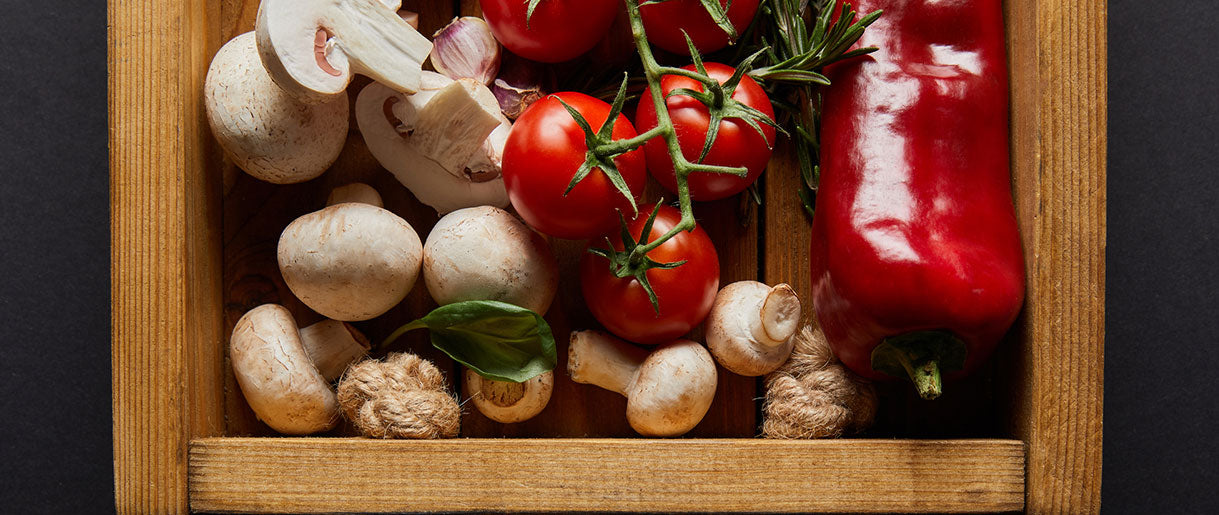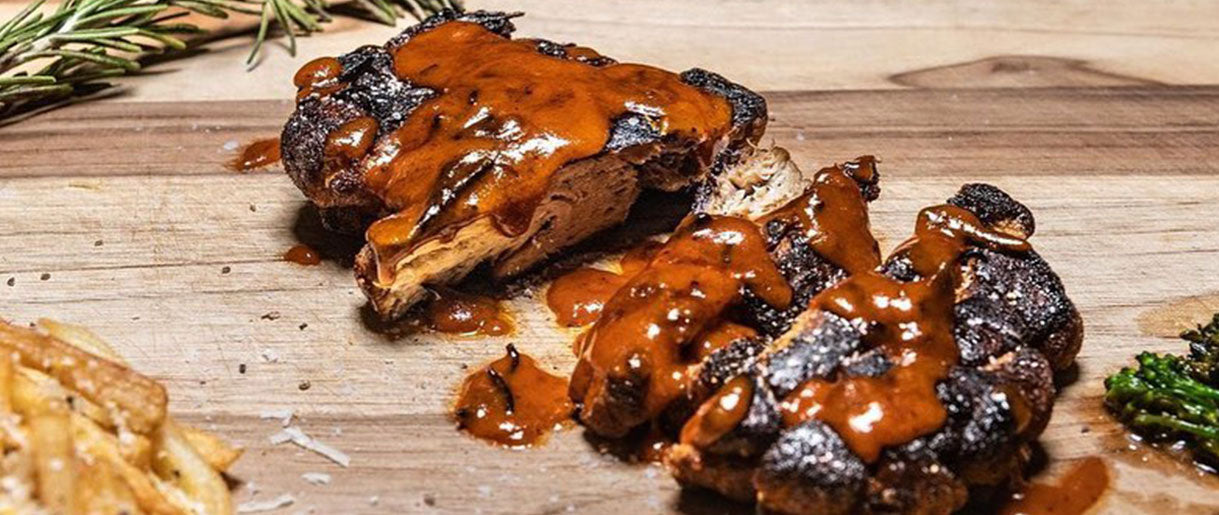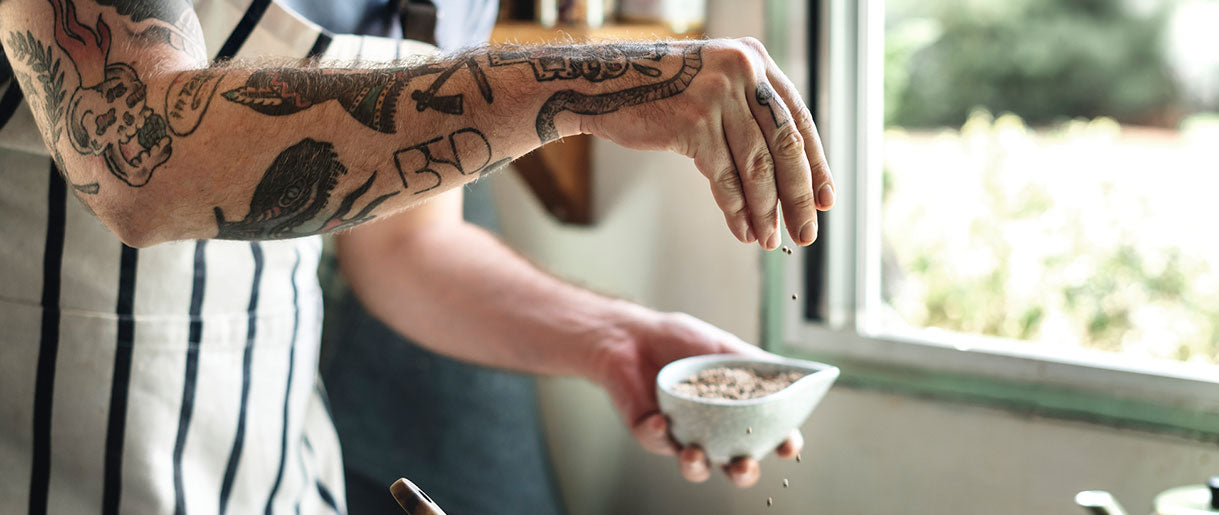Unless you feed a large family, a packet of mushrooms seems overboard for only one recipe. The remainder can be kept and used to season brown rice, a steak, or an omelet. Unfortunately, mushrooms can become limp and floppy over time, as anybody who has ever opened a leftover bag to see a collection of sad mushrooms can attest.
So, how long do mushrooms last in the fridge? The mushroom is so humble, so versatile, and so healthy(1).
However, it is not renowned for having a long shelf life. Mushrooms typically last 5 to 7 days in the refrigerator, but a few things can shorten or lengthen their shelf life.
Let’s explore how long are mushrooms good for and how to prevent disappointment (and food wastage) in the future.
Factors Affecting Mushroom Shelf Life

How long does mushrooms last depends on a few factors, such as the following:
1. Type
The type of mushroom can affect how long these remain fresh. They typically last longer the bigger they are.
The three most popular types of mushrooms consumed worldwide are cremini, portobello, and white button. Although they appear diverse, these mushrooms are all the same; their appearance only varies with age.
The freshest and youngest mushrooms are white button mushrooms, whereas cremini and portobellos have been grown for a very long time.
Shiitake mushrooms are distinguished by their brown umbrella-shaped caps, and the freshness of the mushroom affects its flavor and perfume. Dried shiitakes have a stronger flavor and aroma.
2. Form
Sliced mushrooms won't keep as long as whole ones. So always keep your mushrooms whole to preserve them for a long time.
3. Storage
Mushrooms are considerably happier in paper bags because plastic bags don't allow them to breathe. Additional elements, including fridge temperature and moisture levels, can also impact the duration of the freshness of mushrooms.
4. Cooked
Cooked mushrooms properly preserved in the refrigerator can be kept for up to 10 days. After that, these mushrooms should be kept in a small, airtight container or resealable plastic bag. If cooked mushrooms are left out for longer than two hours at room temperature, they should be thrown out because bacteria can multiply in warm environments.
It is recommended to freeze the mushrooms in sealed, airtight containers or plastic freezer bags if you want to preserve them for longer, precisely like fresh mushrooms.
How Long Are Mushrooms Good For?

Similar to the majority of vegetables purchased in-store, the date of purchase should be used to calculate the shelf life of mushrooms. But how long can mushrooms last in the fridge?
Generally, fresh whole mushrooms can remain fresh in the fridge for around ten days, while fresh sliced mushrooms can keep for up to 7 days. The real time could range from four to 10 days, depending on the variety. Your mushrooms' shelf life will be increased by an additional three to five days once you've cooked them.
The next thing on our mind is how long are dried mushrooms good for.
Dried mushrooms can be stored indefinitely if kept dry. The optimal storage conditions for dried mushrooms are an airtight container or a resealable plastic bag. Keep them in a dry, dark area like the freezer or the back of a cabinet unless you discover a bug in your bag, which does happen. In that scenario, it is usually best to discard them.
Proper Storage Practices For Mushrooms

How can you store mushrooms properly to increase their shelf life? To help you make the most of your mushrooms before they spoil, here are some tips for keeping them fresh for long.
Let mushrooms breathe.
Mushrooms should be stored in a way that lets them breathe but doesn't overly dry them off. One common way to store them is inside the fridge in a paper bag with the top rolled up loosely.
Use paper towels and plastic bags.
Mushrooms can also be kept reasonably fresh by keeping them in plastic bags lined with paper towels to help absorb moisture. Change the towels frequently if you don't intend to use your mushrooms immediately. To ensure you use them all before they spoil, try experimenting with adding them to different dishes!
Keep them sealed in an airtight wrap.
Simply keeping them in the sealed bags or containers they come in is one of the best storage methods. If they are packaged in cardboard covered in plastic, there is no need to put them in a different container when you bring them home. Also, ensure you don't open or mess with them until you're ready to use them.
Freeze them.
Mushrooms can be frozen to use at a later date. However, freezing them raw is significantly more challenging because mushrooms retain so much water. If you choose to do this, freeze the items on parchment paper and rapidly transfer them to an airtight bag with as little air as possible. Cooking them first, then placing them in freezer bags or airtight containers (use whatever holds less air when sealed), is the best method for freezing them.
Additional tips
If feasible, always choose whole mushrooms; only slice them when ready to cook them. Sliced mushrooms won't keep as long in the fridge as whole ones.
Before storing mushrooms in the refrigerator, avoid washing them. They'll absorb more water, and the high humidity hastens their spoilage.
Wash your mushrooms if you need to, but just before cooking. However, scrubbing them with a mushroom brush is recommended to remove any lingering dirt or debris.
Don't keep your mushrooms in the drawer of your refrigerator either, since that area tends to be humid. These drawers are the worst place in your fridge to store your mushrooms, but they're perfect for stuff like lettuce or fresh herbs that wilt quickly.
Signs Of Spoilage And Mushroom Quality

Here are several prominent and less apparent signs that it's time to throw these fungi away. When determining whether to preserve, cook, or discard your fungi, use your best judgment but err on caution.
They are slimy.
The most important rule of thumb for gauging freshness is that mushrooms are no longer suitable for consumption when they become slimy. When fungi are kept in the fridge for an extended period, they frequently get slimy. Even if they aren't dangerous at this stage, throwing them away is still a good kitchen practice.
They are wrinkly.
Older mushrooms can occasionally develop wrinkles and dryness instead of becoming slimy. Although it's acceptable to slightly dry out your mushrooms (because they are already relatively moist vegetables), you don't want them to get overly wrinkled. It's better to throw them than eat them if they appear pretty shriveled.
They have dark spots or are getting darker.
Your fungus is beginning to rot if they have dark patches. The best thing you can do is to monitor your mushrooms constantly while they're in the refrigerator. Use or lose them if you see them becoming darker or showing black areas.
They've been around for at least two weeks.
According to the general consensus, in the refrigerator, mushrooms' maximum shelf life or storage duration is two weeks. But, of course, you should exercise your best judgment and common sense. They probably are okay to consume if it has been less than two weeks and they still appear, smell, and feel normal.
They give off a smell.
Your mushrooms shouldn't smell strong. If they have an odor, they are no longer suitable. The smell of mushrooms should be mild and undetectable unless you are sticking your nose straight up to them. You have rotten mushrooms if you pick up the bag, open it, and then have to turn around. Get rid of them!
FAQs About How Long Are Mushrooms Good For
What Happens If You Eat Slightly Bad Mushrooms?
Although eating a spoiled or rotten mushroom could make you sick or upset your stomach, store-bought mushroom poisoning is uncommon. For example, if cooked and left out for hours before being put in the refrigerator, they could upset your stomach when you reheat them.
Why Do Mushrooms Expire So Quickly?
Mushrooms can spoil fast due to their delicate flesh and high moisture content. However, if you adhere to a few rules, they'll stay fresher longer.
Can You Still Eat Mushrooms If They Have Mold?
If moldy, mushrooms should be thrown away. Moldy mushrooms can easily be polluted underneath the surface since they contain so much water.
Key Takeaway
How long are mushrooms good for? Your mushrooms will survive much longer in the refrigerator than on your kitchen counter. So, your mushroom pals should stay with you for 7 to 10 days.
Never forget that mushrooms going bad isn't a valid reason to avoid eating them. Instead, enjoy the texture and nutrition these savory fungi may give your foods by using common sense, watching out for the telltale signs, and using them in your cooking!
References
- Edible Mushrooms: Improving Human Health and Promoting Quality Life, (1)https://www.ncbi.nlm.nih.gov/pmc/articles/PMC4320875/










Let Us Know Your Comments